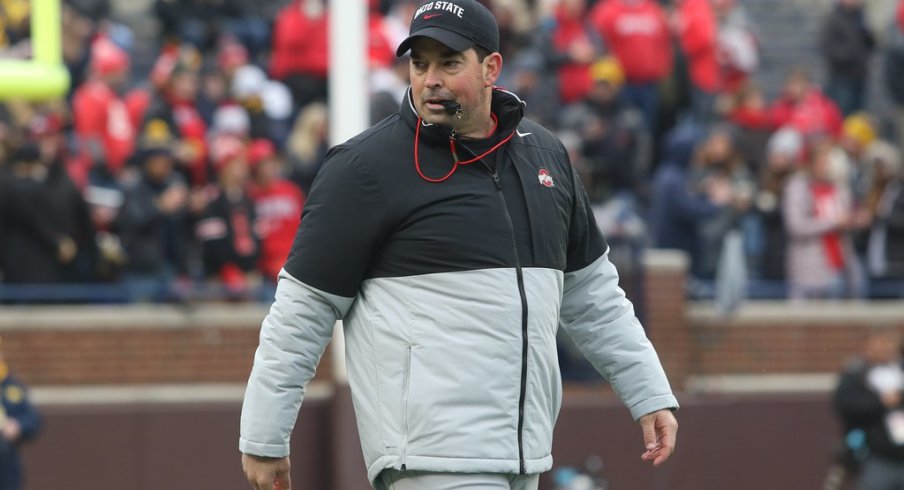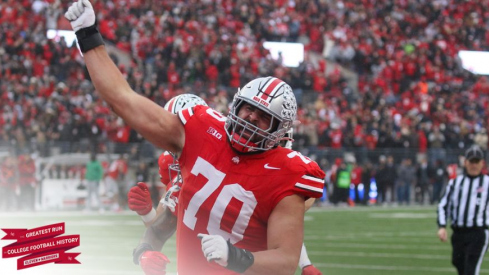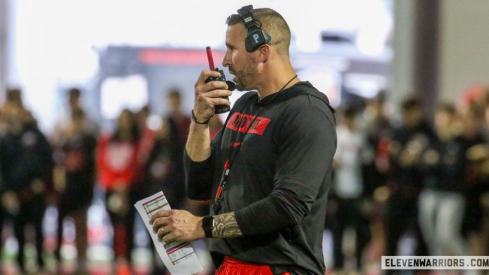The coronavirus pandemic has already claimed several sporting events that we look forward to every year. It began with the loss of March Madness, then it stole the start of the MLB season. NBA, hockey and golf seasons were put on hold. It was the worst, and continues to be the worst even as some of our sports return in a limited, no-fans capacity.
It's an offseason that has us looking back at our favorite things while we desperately hope to add new memories this fall. Sports are an escape, and we could certainly use that escape as the virus continues to spread through the country at a staggering rate.
But that spread is threatening college football. The number of programs that shut down voluntary workouts in preparation for the 2020 season has reached double digits, and that's before contact-drills have even been implemented.
With so much uncertainty looming, change has already begun. The Big Ten and Pac-12 have already announced the cancellation of non-conference games. It wouldn't be surprising if the remaining Power 5 conferences followed suit.
That move offers programs a lot of flexibility and makes it more realistic that college football actually kicks off this season.
But shifting to conference-only competition could be the tip of the iceberg for changes coming to the 2020 college football season.
The College Football Playoff
Since its inception, the college football playoff race has been a season-long debate that includes both non-conference and conference play.
Teams who schedule more aggressively against high-ranked non-league opponents are theoretically rewarded in the eyes of the playoff committee. With that same measuring stick, teams who schedule easy non-conference games are supposed to be looked at more harshly.
If all Power 5 conferences abandon their non-league slate, it would eliminate that consideration from the playoff committee. But it would also make it hard to evaluate the hierarchy of the conferences. Matchups like Oregon's vs. Ohio State, LSU vs. Texas and Alabama vs. USC were supposed to help establish that.
Recruiting
The recruiting scene has already been impacted more by the coronavirus than most aspects of college football.
Most of the spring and early summer camps that schools — and big sites like 247Sports, Rivals and Scout — use to further evaluate upcoming prospects have been canceled. That puts more pressure on programs around the country that are trying to evaluate the players they want to offer. They'll have to rely more on game film from the upcoming season, but even that's hanging in the air.
The state of Virginia has already canceled high school football in the fall, leaving an out for the season to possibly be played in the winter or spring. It's hard to imagine Virginia being the only school to make this move.
Bowl Season
The other big aspect of college football that's bound to change is the bowl season.
Sports leagues around the country are doing everything they can to limit the risk. The NBA created its bubble in Orlando and invited just the top 22 teams to close out the season before kicking off the playoffs. The PGA tour is keeping fans off the course and altering the schedule to limit the amount of travel. Baseball is changing its schedule to only feature regional competition.
With how things are trending, it's hard to imagine college football moving forward with all 40 of the bowl games that are scheduled to take place at the season's end.
Which bowl games are and aren't played is impossible to gauge at this point, but it doesn't take a huge leap to imagine some will be canceled. But another layer to this is bowl qualifications. Is the .500 winning average the standard with a college football schedule that doesn't include non-conference opponents?
With all that said, it's also hard to imagine a college football season without the playoff and other premier bowl games.


